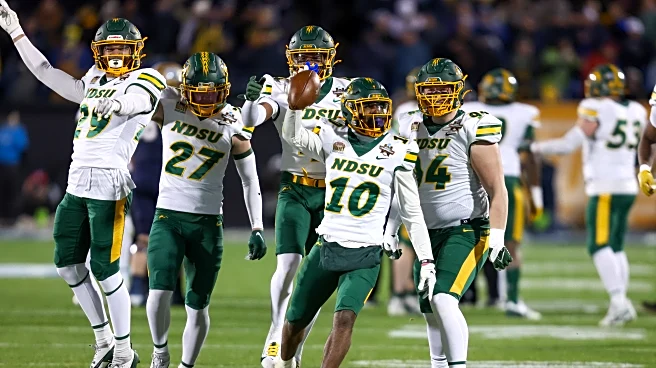What's Happening?
In the latest analysis of fantasy football snap shares, TreVeyon Henderson emerged as a significant player with a notable increase in playing time. Henderson played 75% of the snaps, a substantial rise compared to his previous games, where he was underutilized.
This increase in snap share allowed him to score over 12 PPR points, showcasing his potential as a dominant running back. Despite this, the coaching staff still utilized Terrell Jennings in goal-to-go situations, indicating a cautious approach to Henderson's role. Other players like Devin Singletary and Christian Watson also saw their snap shares rise, while Alvin Kamara and Kaleb Johnson experienced declines. These changes reflect ongoing adjustments in team strategies and player performances as the season progresses.
Why It's Important?
The shift in snap shares is crucial for fantasy football managers as it directly impacts player value and team strategies. TreVeyon Henderson's increased playing time suggests a potential rise in his fantasy value, making him a more attractive option for managers. Conversely, the decline in Alvin Kamara's snap share could signal a decrease in his effectiveness, prompting managers to reconsider his role in their lineups. These trends also highlight the dynamic nature of team strategies, where player performance and coaching decisions can significantly alter the fantasy landscape. Understanding these changes allows managers to make informed decisions, potentially gaining a competitive edge in their leagues.
What's Next?
As the season progresses, fantasy football managers will need to monitor these snap share trends closely. TreVeyon Henderson's role may continue to evolve, especially if he maintains his current level of performance. Managers should also watch for any further adjustments in Alvin Kamara's usage, as this could impact his fantasy value. Additionally, the performance of other players like Devin Singletary and Christian Watson will be crucial in determining their future roles. These developments will require managers to stay informed and adaptable, ensuring they can capitalize on emerging opportunities and mitigate potential risks.
















